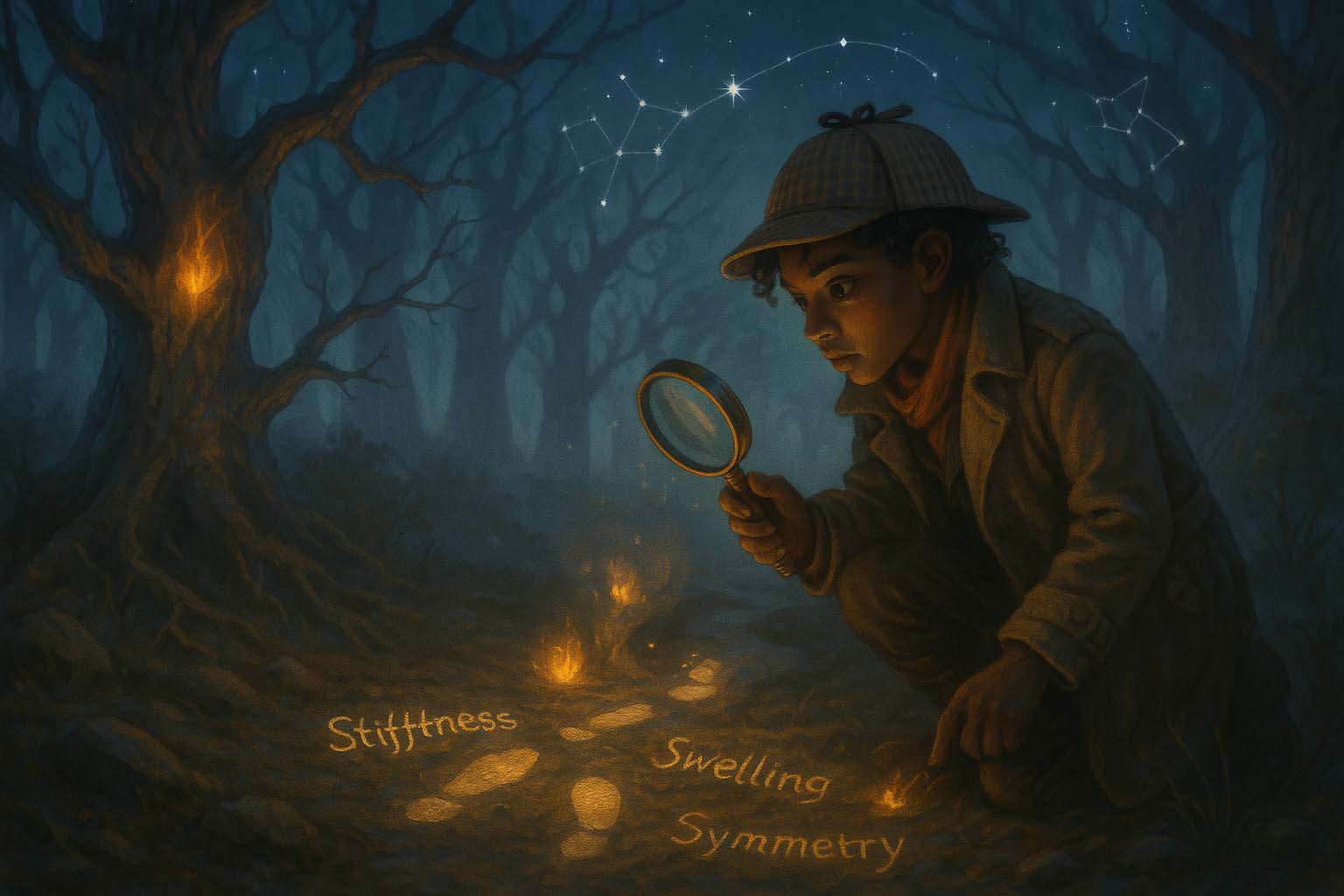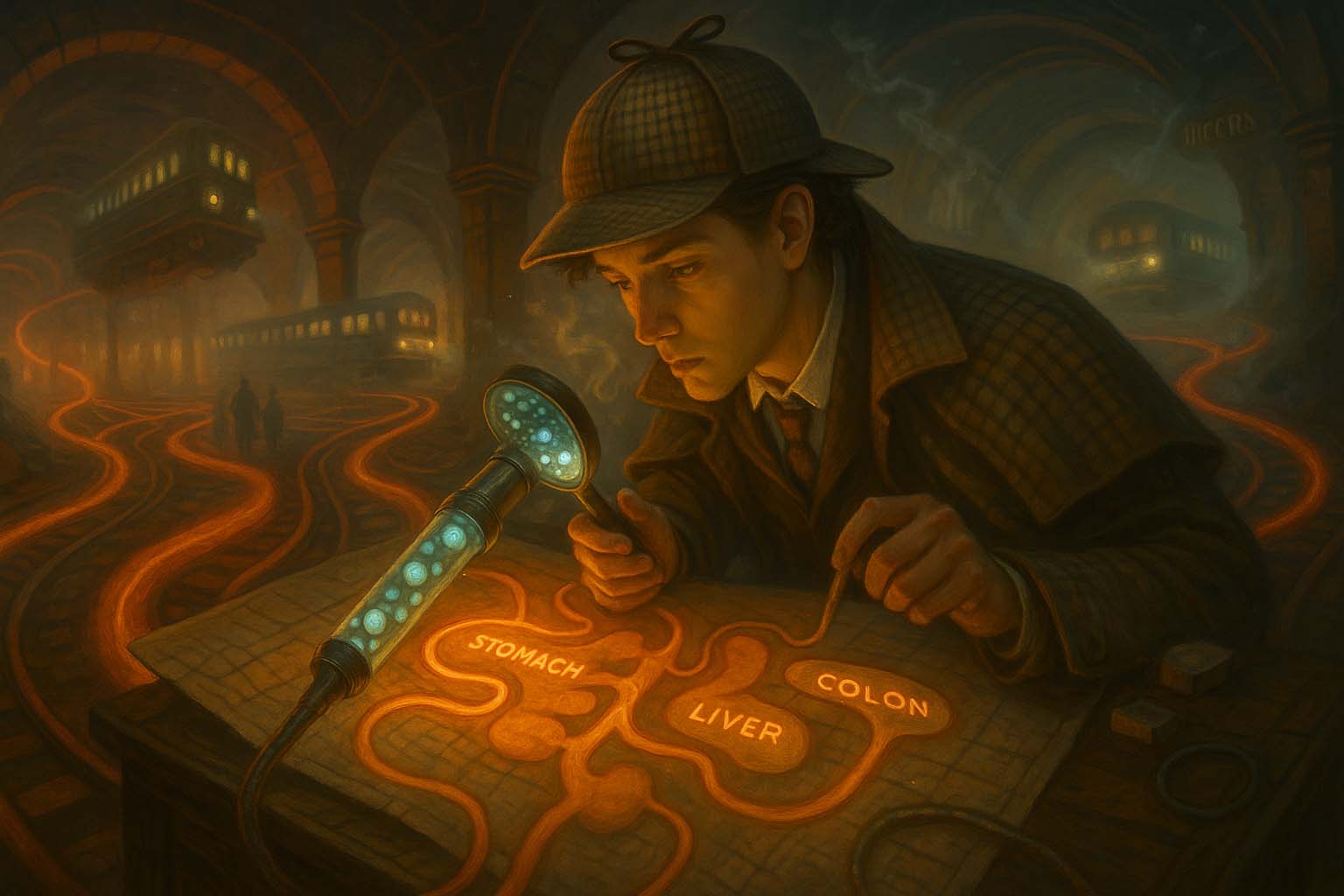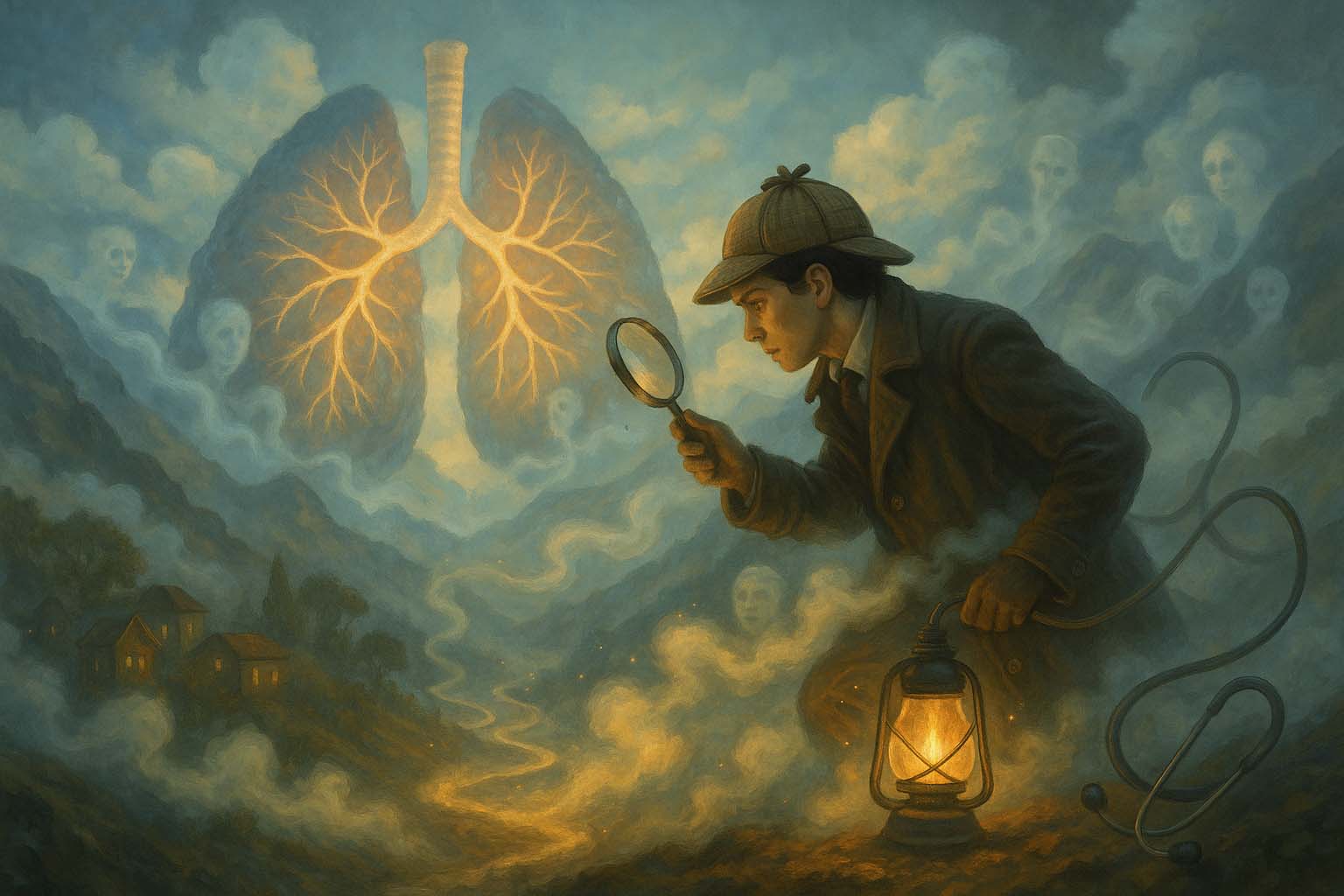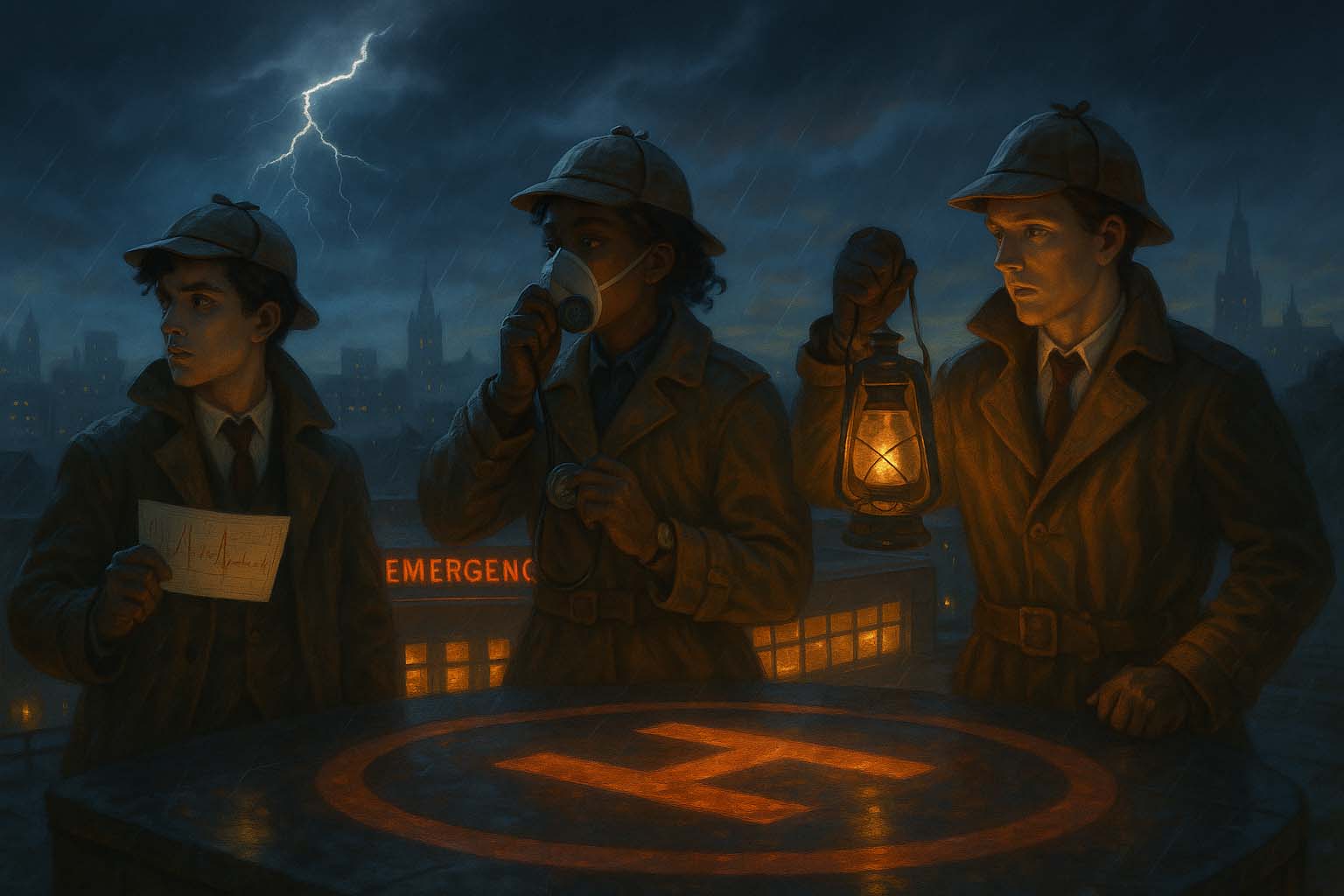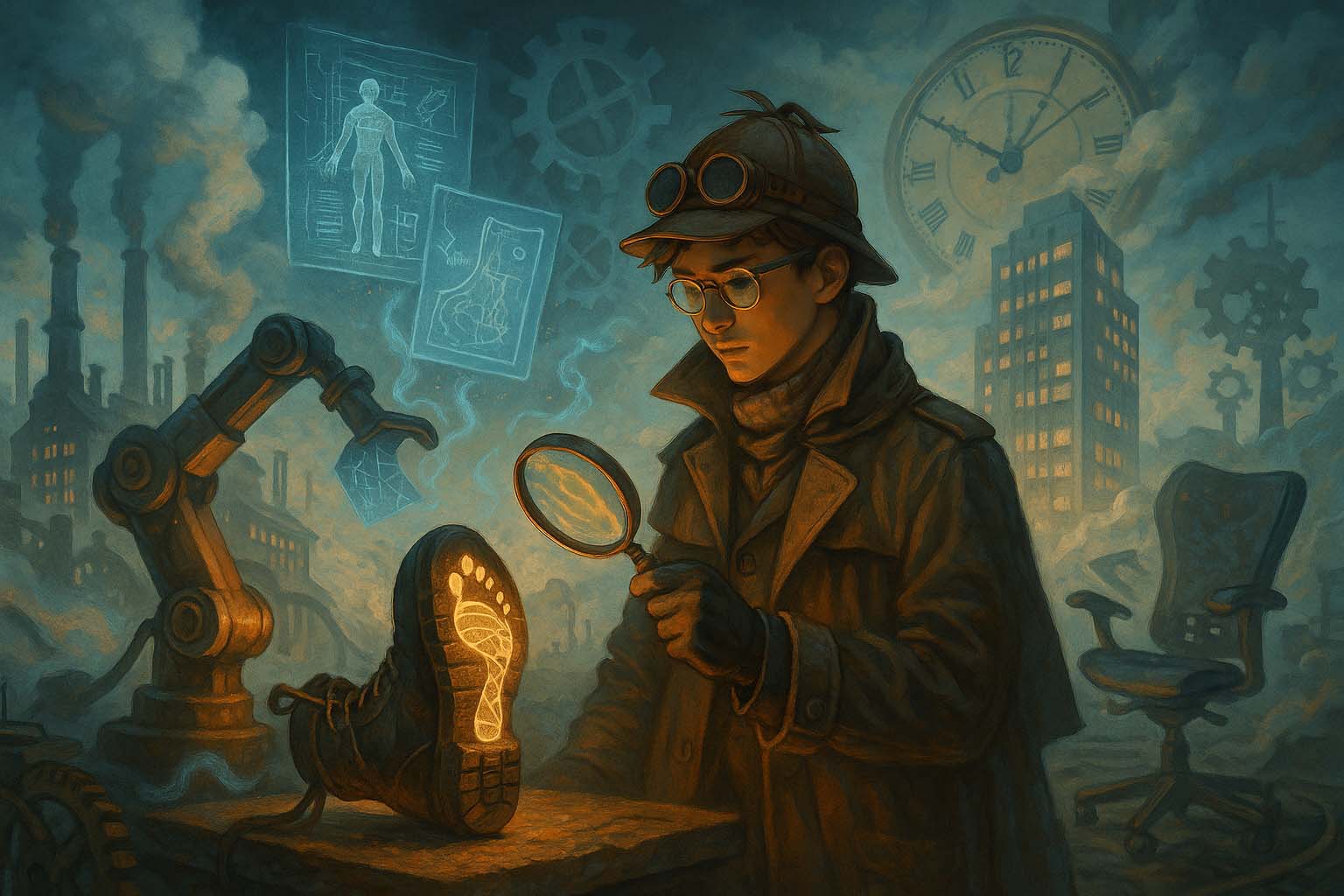Step into the shoes of a Dermatology sleuth.
In this specialty, the clues are in plain sight—but the meanings lie beneath. Dermatologists read the body’s largest organ like a field guide: colours, textures, shapes, and patterns all become evidence. But not every rash reveals its truth at first glance. These detectives must look deeper—through layers of skin and story. Welcome to a world where what appears superficial may point to systemic secrets, and where the skin is both canvas and code.
Step into the shoes of a Rheumatology sleuth.
This is a field where clues smoulder rather than scream—where pain lingers, joints swell without warning, and the immune system turns detective into diplomat. Rheumatologists investigate the mysterious interface between inflammation and identity, seeking meaning in morning stiffness, subtle serologies, and chronic fatigue. Welcome to a world where a rash may foretell renal failure, and a swollen knee might signal a systemic revolt.
Step into the shoes of a Nephrology sleuth.
In this specialty, the trail is traced through fluid, filtrate, and function. Nephrologists are investigators of internal equilibrium—specialists in the slow unravel of salt, potassium, and acid-base secrets. They monitor filters that never sleep and balance that can tip with the smallest shift. Welcome to a world where swollen ankles, frothy urine, or rising creatinine are clues, and every litre retained or lost tells a story of systemic design—and dysfunction.
Step into the shoes of a Gastroenterology sleuth.
This is the long and winding trail from mouth to anus—a digestive odyssey rich in signs, symptoms, and secrets. Gastroenterologists investigate a realm where pain can masquerade as hunger, and bleeding may be slow, silent, or sudden. They listen to bowels, peer through scopes, and decipher the language of enzymes and inflammation. Welcome to a world where a burp may be benign or a bombshell, and every abdominal complaint is a story waiting to be scoped.
Step into the shoes of an Endocrinology sleuth.
This is the specialty of hidden signals and whispered instructions—where dysfunction doesn’t shout but ripples silently through the body. Endocrinology detectives trace the trails of hormones: messengers that travel great distances to deliver small but powerful commands. Here, clues lie in patterns: weight that creeps up, fatigue that lingers, hands that tremble. Welcome to a world where a neck swelling, brittle bones, or a blood sugar spike could all trace back to a single gland.
Step into the shoes of a Neurology sleuth.
Here, the mysteries are electrical, the maps are cortical, and the clues often hide in subtle signs. Neurologists investigate the command centre of the human body—the brain, spinal cord, and peripheral nerves—where a lesion the size of a lentil can rewrite a life. These detectives follow dropped reflexes, wandering words, tremors, twitches, and sudden silences. Welcome to a world where a shadow on an MRI can explain a year of falling, and where every neurological exam is a riddle with layers.
Step into the shoes of a Respiratory Medicine sleuth.
The lungs are both gateways and guardians—filters of the outside world, bellows of life itself. In Respiratory Medicine, detectives follow the whisper of breath, the riddle of a rattle, the murmur of a lung that’s lost its rhythm. These are the physicians who read chest X-rays like weather maps and listen to coughs like coded messages. Welcome to a world where a wheeze is a warning, and a patch of shadow may signal far more than meets the eye.
Step into the shoes of a Cardiology sleuth.
Here, every heartbeat is a clue—every murmur, a message. Cardiology detectives work in the chambered citadel of the human body, decoding silent struggles and dramatic collapses alike. Their mysteries range from whispered murmurs to sirens of cardiac arrest. With stethoscope in one hand and ECG in the other, they listen not just to the heart’s beat—but to its story. Welcome to a world where a skipped beat can signal a storm—and speed, precision, and care save lives in real time.
Step into the shoes of an Emergency Medicine sleuth.
This is the front line of medicine’s battlefield—the unfiltered arena where chest pain, trauma, overdose, and undifferentiated collapse all arrive at once. Emergency physicians don’t have luxury—they have instinct, systems, and speed. They stabilise the crashing, prioritise the waiting, and illuminate the unknown with structured chaos. Welcome to a world where you often know nothing but must decide everything, and where every second counts, even when the diagnosis doesn’t yet exist.
In the world of medicine, not every mystery begins with drama. Some start with a cough, a question, a quiet change. General Medicine and Primary Care specialists are the first-line detectives—the ones who meet the patient before the plot thickens. They listen before they scan, examine before they escalate, and connect patterns before they confirm them.


